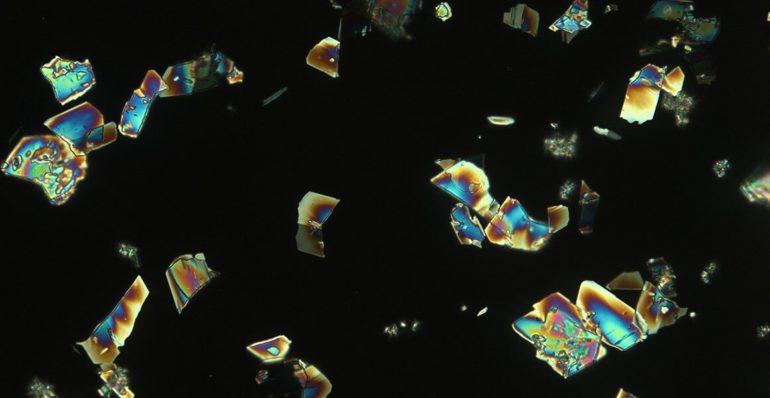As countries race to become carbon neutral, a new commentary from Prof Richard Herrington, Head of Earth Sciences Department at the Natural History Museum, has examined the cost of our green future and concludes that we may need accept an increase in UK mining in the short term.
In 2020, amidst the COVID-19 crisis, the World Economic Forum’s Great Reset initiative highlighted the crossroads society faces for its post-pandemic rebuild in the context of climate and planetary emergencies.
Their idea is that the energy industry is transformed and rebuilt in a resilient, equitable and sustainable way, while harnessing the innovations of the fourth industrial revolution. But the green energy revolution is heavily reliant on raw materials, such as cobalt and lithium, which are currently mainly sourced by mining. We must now carefully evaluate acceptable supplies for these metals to ensure that green technologies are beneficial for both people and planet.
The UK has just announced an intent to speed up its reduction of carbon emissions with the new plan set to cut them 78% by 2035. The biggest obstacle to this is internal combustion engine vehicles (ICEVs) which are the greatest contributors to carbon emissions within the UK.
To switch the UK’s fleet of 31.5 million ICEVs to battery-electric vehicles (BEVs) would take an estimated 207,900 tons cobalt, 264,600 tons lithium carbonate, 7,200 tons neodymium and dysprosium and 2,362,500 tons copper. This is twice the current annual world production of cobalt, an entire year’s world production of neodymium and three quarters of the world production of lithium. To do the same worldwide would need forty times these amounts.
Prof Richard Herrington says, “What we have to accept is that everything has a cost. These green technologies need to be built and to do this we have to mine minerals.”
Over the last year the need for those minerals has been increasing sharply. Even as the pandemic caused worldwide economic slowdown a record 3M new electric cars were registered around the world in 2020, to bring the total to 10M. There are also approximately a further 1M BEVs made up by vans, heavy trucks and buses.
Prof Herrington adds, “With demand increasing the good news is that minerals such as lithium, are never used up. Once our green economy is functioning it has the potential to eventually become a truly circular system where we recycle old technology to build new and in doing so decrease mining demands.”
In the short-to-medium term, recycling cannot meet global demand for mineral supplies. However, by 2035, there may be 245 million BEVs on the road, which, given average car scrappage rates of 6.9%, could provide scrap from 17 million vehicles per year.
Prof Herrington explains, “These vehicles could provide recoverable metals for a considerable percentage of the world’s new BEVs with appropriate recycling strategies. With optimal recycling rates, 30-40% of the U.S.”s needs for both lithium and cobalt could be met by recycling after 2035.”
This does, however, leave a shortfall. Although we are not running out of resources there are certainly supply challenges for commodities, such as graphite, cobalt, and lithium, for which increases in demand close to 500% are projected.
Currently much of the world’s supply of the minerals we will need for our green economy are largely supplied in bulk by individual countries. For example, cobalt is largely sourced from the Democratic Republic of the Congo with 60% of the world’s supply being extracted as a by-product from the mining of copper. This can cause problems with supply from the Democratic Republic of the Congo periodically experiencing disruption because of political instability, in addition to ongoing child labor issues which both have major implications for the aim of an ethical supply.
This means we need to look for new areas to extract the minerals we need and create un-interrupted, ethical supply chains capable of meeting the world’s needs.
Prof Herrington continues, “Currently we import these minerals but if we are truly going to hit carbon reduction targets we may need to accept mining on our doorstep.”
Estimates in 2012 concluded that unrecovered cobalt from existing nickel mines in Europe could supply 50% of the metal needed for European Li-ion battery plants. The geology of Europe is favorable for a range of new potential sources for the metal.
Perhaps most controversially, deep ocean nodules could offer industry all the cobalt and most of the copper, nickel and manganese we may need for the world’s BEVs. A deep-sea polymetallic nodule will be displayed as part of the Museum’s upcoming display Our Broken Planet: How We Got Here and Ways to Fix It later this year. The program explores human impact on the planet and why our relationship with the natural world needs to change.The first phase of the display opens on 21 May.
Clean technologies and infrastructure of a low carbon future carry intense mineral demands. A circular economy would be achievable by 2030, if governments and the private sector collaborate and innovate right across the supply chain to ensure that products, such as batteries, can be easily disassembled and recycled. However, growth trends suggest that mining may yet still play a significant role.
Prof Herrington concludes, “The ambition remains to recycle and reuse as much as we can; however, new-mined resources will be required in the short term.”
“There are sufficient geological resources to deliver the required metals, but we must carefully balance the need to mine with the requirement to tackle environmental issues to deliver a green future, ensuring the outcomes are beneficial for both people and planet.”
The commentary, “Mining our green future,” is published in Nature Reviews Materials.
Cobalt supply can meet demand for electric vehicle and electronics batteries: study
More information:
Richard Herrington, Mining our green future, Nature Reviews Materials (2021). DOI: 10.1038/s41578-021-00325-9
Provided by
Natural History Museum
Citation:
Green energy may require increased mining in the U.K. in the short term, experts say (2021, May 24)
retrieved 25 May 2021
from https://techxplore.com/news/2021-05-green-energy-require-uk-short.html
This document is subject to copyright. Apart from any fair dealing for the purpose of private study or research, no
part may be reproduced without the written permission. The content is provided for information purposes only.



